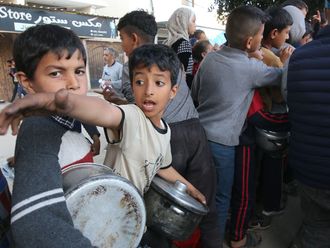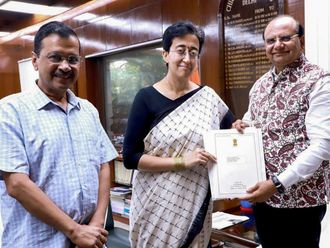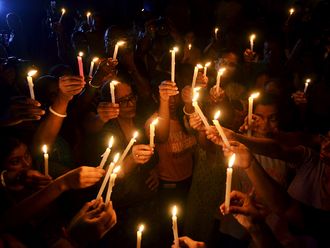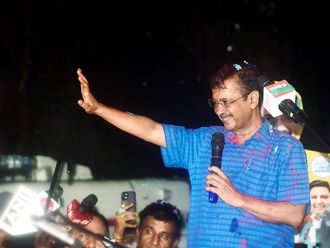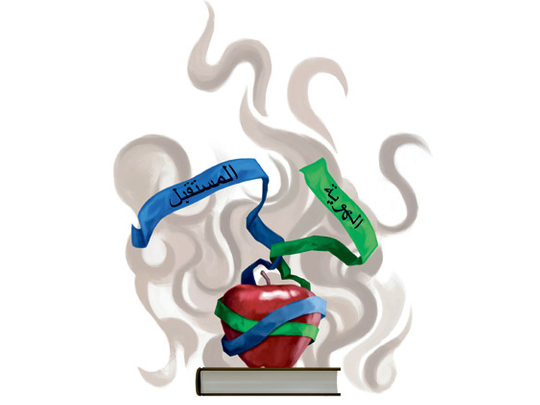
Everyone agrees that the UAE education system needs reform, and most agree that the best practice from around the world should be brought into the country to be the centre of these reforms, but there is a lot less agreement on how all this would work in practice.
Two factors drive widespread deep concerns. First, there is the obvious failure of the UAE schools, particularly in the state system, to provide quality education. Over the decades there has been too much emphasis on learning by rote, and not enough on self-motivation and independent thinking, with a curriculum which got stuck in the past.
Second: as better educational methods are brought to bear in the schools, there is a genuine worry that the foreign origin of these methods can become a threat to the embattled national identity, a demographic threat which has been exaggerated by the poor teaching of Arabic in the UAE schools.
This is why you have respected thinkers like Dr Mariam Lootah, of the Political Science Department at UAE University, telling the conference on Education in the UAE at the Emirate Centre of Strategic Studies and Research (ECSSR) of the negative impact of "continuous intervention by foreigners, changing policies, and that too much time and money is given to foreign experts and not enough time given to local priorities."
Dr Mariam was very specific that "the main factors in education policy have to be local, and the UAE needs to focus on internal drivers to build good citizens".
This important theme of the underlying purpose of education in building a strong society was echoed by Dr Abdul khaleq Abdullah, professor of Political Science at UAE University and the chair of the session, who reminded the conference of the importance of emiratisation in teaching, and finding and training Emirati teachers.
"Just as we emiratised our armed forces 20 years ago, so education has to be emiratised so as to create good citizens," he said.
However, in the vigorous debate following the speeches, several speakers' passionate insistence on the importance of effective Arabic skills and reinforcing the UAE national identity drifted into the dangerous area of tending to equate foreign with bad, and Emirati with good. But in fact the combination of the two is where the UAE should be heading: good world class practice and strong UAE identity have to go together. As even Dr Mariam said, "we can benefit from the experiences of others and build with them."
The point of contention was how this was to be done, given the background of the Ministry of Education's failure to follow a clear strategy over the decades.
The overall vision was made clear by Shaikh Nahyan Bin Mubarak Al Nahyan, Minister of Higher Education and Scientifc Research, when he said in his opening address that learning foreign languages "does not contradict our universities and colleges being genuine national institutions, because we are also concerned that graduates are well versed in Arabic and our Arab and Islamic heritage."
The ECSSR's conference also brought to the fore the dangers of allowing diverging school standards and practices in different emirates, as the various educational authorities in different emirates carry out their own reforms of the schools in their responsibility.
"We have a federal state and we need a unified education policy," said Dr Mariam, as she commented on the current decentralisation from the federal Ministry of Education. "There are some trends which go against that policy. If they support it, good. But if they contradict it, they have to be re-evaluated. We are one country."
This concern was over any divergence in strategy between the federal and different emirate governments, such as the programmes run by Dubai's Knowledge and Human Development Authority, and the Al Ghad programme of reform launched some year ago by the Ministry of Education, and the Abu Dhabi Education Council's New School Model, a profound reform of teaching methods being implemented in Abu Dhabi schools this month.
ADEC has started the New School Model in all grades from Kintergarden up to Grade 3 at the start of this academic year, and it is due to be rolled out into all grades by academic year 2015-16. Dr Lynne Pierson of ADEC said "the New School Model is not about English. It is about teaching. We use Arabic in KG as the mother tongue."
Urgent concern
Education has become a real concern in the UAE as all nationals, ranging from the most liberal to the most conservative, who find common ground in the threat that the generation just emerging into the work force has almost been overwhelmed by the huge proportion of resident foreigners in the country.
This is why there is a powerful requirement to focus on ensuring that all UAE nationals can speak Arabic well. The need to bolster the UAE national identity is vital for the survival of the UAE as an Arab and Gulf nation.
The challenge is to combine this urgent task with another: taking the UAE into the global world, relying on its own population who will need a world-class education to be able to survive at a minimum, and at best offer leadership to other countries, in the global world.


